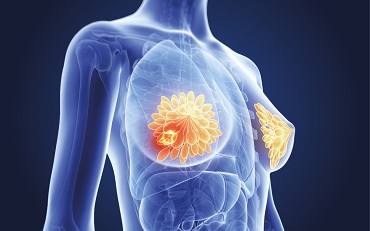Study Shows That The Phytochemical Calycosin Extracted From Red Clover And Astragalus Propinquus Plants Can Help Prevent Breast Cancer Metastasis
Source: Phytochemicals and Breast Cancer Sep 03, 2021 3 years, 7 months, 2 weeks, 3 days, 9 hours, 56 minutes ago
Phytochemicals and Breast Cancer:
A new study by researchers from Hanshan Normal University, Guangdong-China and Youjiang Medical University for Nationalities, Guangxi-China has found that the phytochemical Calycosin helps prevent breast cancer cell progression.

Calycosin is a O-methylated isoflavone that is extracted from either of these two plants: Astragalus Propinquus (Mongolian Milkvetch) and also from the plant Trifolium pratense L. (Red Clover).
In 2020 alone, there were 2.3 million women diagnosed with breast cancer and 685 000 deaths globally. As of the end of 2020, there were 7.8 million women alive who were diagnosed with breast cancer in the past 5 years, making it the world's most prevalent cancer.
https://www.who.int/news-room/fact-sheets/detail/breast-cancer
The rates of breast cancer incidence have been increasing constantly in the last few decades.
Improvements in diagnosis and therapeutic strategies have increased the survival rates among breast cancer patients in recent decades, but the prognosis of advanced stage breast cancer patients remains poor because of the high rates of drug resistance and disease recurrence. Furthermore, the efficacy of current treatments in breast cancer patients with distant metastasis is poor. Therefore, there is an urgent need for new and effective treatment strategies against breast cancer metastasis.
The study team investigated the effects of calycosin on breast cancer cell progression and their underlying mechanisms. Calycosin dose- and time-dependently inhibited proliferation, migration, and invasion by T47D and MCF-7 breast cancer cells by downregulating basic leucine zipper ATF-like transcription factor (BATF) expression. Moreover, BATF promoted breast cancer cell migration and invasiveness by increasing TGFβ1 mRNA and protein levels.
Bioinformatics analysis, dual luciferase reporter assays, and chromatin immunoprecipitation assays confirmed the presence of BATF-binding sites in the promoter sequence of TGFβ1 gene. Calycosin treatment inhibited epithelial-mesenchymal transition (EMT) of breast cancer cells by significantly increasing E-cadherin levels and decreasing N-cadherin, Vimentin, CD147, MMP-2, and MMP-9 levels through downregulation of BATF and TGFβ1. TGFβ1 knockdown reduced the migration and invasiveness of BATF-overexpressing breast cancer cells, whereas incubation with TGFβ1 enhanced the migration and invasiveness of calycosin-treated breast cancer cells.
The study findings demonstrated that calycosin inhibited EMT and progression of breast cancer cells by suppressing BATF/TGFβ1 signaling. This suggests calycosin would be a promising therapeutic option for breast cancer patients.
The study findings were published in the peer reviewed journal: Aging
https://www.aging-us.com/article/203093/text
The study showed that Calycosin inhibits breast cancer cell migration and invasion by suppressing EMT via BATF/TGF-β1.
Dr Yu
zhong Zheng and Dr Fenglian Yang from the Hanshan Normal University told Thailand Medical News, “Phytoestrogens are plant-derived non-steroidal compounds that are structurally similar to 17β-estradiol and demonstrate estrogenic effects on breast cancer cells.”
Not many people are aware of the benefits of
Phytochemicals in Breast Cancer treatments.
Plant-derived phytoestrogens are sub-divided into four main classes—isoflavones, coumestans, lignans, and stilbenes. Soy food consumption is associated with lower breast cancer incidence, disease recurrence, and mortality because it contains high levels of isoflavones.
Calycosin is a natural isoflavone isolated from Astragali radix or Trifolium pratense L ., with anti-oxidative, anti-inflammatory and anti-cancer properties.
https://pubmed.ncbi.nlm.nih.gov/24548484/
Studies have shown that Calycosin inhibits invasion and metastasis of colorectal cancer cells by suppressing epithelial-to-mesenchymal transition (EMT).
https://pubmed.ncbi.nlm.nih.gov/31174572/
Research has also shown that Calycosin inhibited in vitro growth of pancreatic cancer cells by inducing cell cycle arrest and apoptosis; however, it also induced metastatic progression of pancreatic cancer in an orthotopic tumor xenograft mouse model by modulating the tumor microenvironment .
https://pubmed.ncbi.nlm.nih.gov/32106002/
Prior to this study, the role of calycosin in breast cancer is not known.
The basic leucine zipper ATF-like transcription factor (BATF) family includes three members: BATF1, BATF2 and BATF3. BATFs belong to the AP-1/ATF super-family of transcription factors and act as inhibitors of AP-1 activity.
AP-1 family of transcription factors regulates cellular proliferation, differentiation, and survival by activating or downregulating the expression of their target genes. Several studies have reported the regulatory role of BATFs in cancer. For example, BATF inhibits epithelial-mesenchymal transition (EMT) in colorectal cancer cells by downregulating TGF-β.
However, the functional role of BATFs in breast cancer is poorly understood. Hence, in this study, the study team investigated the effects of calycosin on breast cancer cell progression and the underlying mechanisms, including its effect on BATF expression and functions in breast cancer cells.
The study team concluded, "Our study findings demonstrated that calycosin inhibited breast cancer cell progression by suppressing EMT via BATF/TGFβ1. Therefore, calycosin is a promising candidate for breast cancer therapy."
The study team has initiated 5 randomized clinical trials in different breast cancer treatment centres in China and preliminary study findings are expected in about three months’ time.
Those interested to procur Calycosin in the form of a herbal tea can contact us directly.
For more about
Phytochemicals and Breast Cancer, keep on logging to Thailand Medical News.
